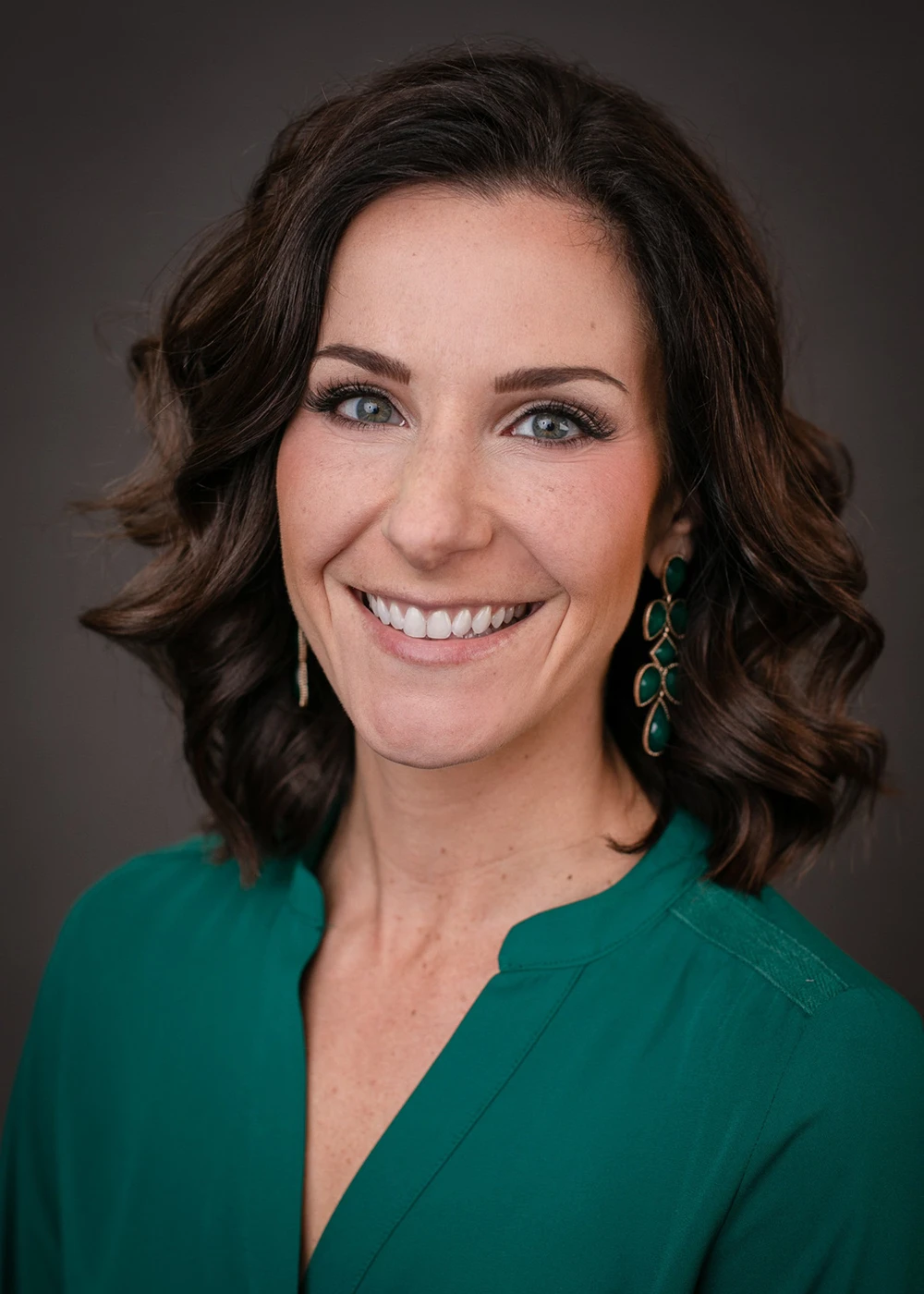
The Meaning of Care Magazine
Care Equity at Methodist: Providing a Safe Space for the LGBTQ+ Community
Published: Dec. 12, 2022


As Libby Kamrowski, 26, cast another line on an unusually warm September morning, she couldn’t help but liken her motions to seeking health care as a member of the LGBTQ+ community.
“It just feels like this huge, intimidating body of water, and there’s no way of knowing exactly where you’re going to land,” she said.
That sinking feeling certainly isn’t lost on her partner, Piper Kenny, 30.
“Every time you go to a doctor, the question of, ‘Are you sexually active?’ comes up even if you have the flu,” Piper said. “Like, ‘Is there a chance you’re pregnant?’ You say no. They ask why. You tell them why. And then you get faces that drop.”
Judgement, bias and discrimination are all things the couple have experienced in their health care journeys. They expected much of the same when they moved to Omaha in October 2021 and began yet another quest for a primary care provider.
The doctor they found?
“Completely disarming,” Piper said.
For the first time, she and Libby felt confident in the future of their health and well-being.
“Firm, Foundational Health Care”
In November 2021, Piper found herself familiarly guarded while waiting to meet internist Shannon Boerner, MD, at Methodist Physicians Clinic.

“But before I told Dr. Boerner anything, she came off as very accepting,” Piper said. “She put you at ease in a way that allowed all of the shields to come down.”
Piper, who came out at an early age, had largely avoided primary care after an uncomfortable encounter at 14. So most of her visit with Dr. Boerner consisted of catching up on vaccines she was long overdue for. She and Dr. Boerner focused on other preventive care at a second appointment.
“At that appointment, I felt comfortable enough to bring up other symptoms I was having,” Piper said.
After diving a little deeper into those symptoms – including painful periods and bothersome facial hair – Dr. Boerner diagnosed Piper with polycystic ovary syndrome, a hormonal disorder that’s one of the most common causes of female infertility.
“It felt good to have that addressed,” Piper said. “Libby and I do want to have kids someday. So in our interest of wanting to expand our love for each other into the next generation, I think having firm, foundational health care is a big part of that.”
Feeling Safe and Heard
Libby, who established care with Dr. Boerner at the urging of Piper, didn’t realize that health care could feel so safe and effortless.
“I’m insanely grateful to have found someone like Dr. Boerner,” Libby said. “A doctor who listens – like really listens – just seems like such a huge step up from the lowest rung of care that I’ve experienced in the past. It’s people like her that help color in the culture of a health system.”
“It’s bittersweet, knowing that the care and compassion everyone deserves feel like such gifts to some folks,” said Dr. Boerner, who’s long been “fiercely protective” of her LGBTQ+ patients. “To me, that feels like the bare minimum anyone should be able to expect from their doctor.”
Her passion for caring for “those who’ve struggled to feel seen, heard or accepted” is largely fueled by patients who’ve confided in her about unfortunate health care experiences. When she came to Methodist in October 2021, she knew she was joining a health system that provided The Meaning of Care to all patients.
“I would only consider working for a health system if I felt confident that each of my patients could expect thoughtful, respectful care from every person they encountered.”
Although she’s proud of the compassionate care that’s felt throughout the system, it’s Methodist’s response to suggested improvements to care that she finds most inspiring.
“For example, requesting that preferred names be included in patient charts. Those things matter in ensuring quality care. And I so value the willingness and openness I’ve experienced here.”
Still, she remains dedicated to spreading awareness even outside the health system.

“One of the gravest misconceptions among providers is the thought that maybe they’ve never treated members of the LGBTQ+ community. Statistically, you do have LGBTQ+ patients. If you think you don’t, you’re not making them feel safe enough to tell you. And if they don’t feel safe, their health is in jeopardy.”
Other Methodist providers, like Sarah Konigsberg, MD, agree. About 10% of the endocrinologist’s patient base identifies as LGBTQ+. That’s higher than the national average of individuals who identify as such due to the gender-affirming care she offers.
“I recently had a more middle-aged patient who I’d been seeing for years just open up and express interest in gender-affirming hormone therapy,” Dr. Konigsberg said. “And that kind of relationship, where you feel like they’re finally letting their guard down, is very rewarding.”
For Carolyn Maud Doherty, MD, a Methodist reproductive health specialist, building relationships with individuals who’ve long felt marginalized is beyond rewarding – it’s personal.
“I have gay members of my own family,” Dr. Doherty said. “This hits close to home. Everyone deserves a family. And we have a responsibility to respond to that in the most positive way possible.”
Progress Over Perfection
“It’s getting better,” Piper said of the stigma that members of the of LGBTQ+ community face, something that can significantly impact their health.
But Dr. Boerner believes there’s more work to be done – especially in health care.
“I don’t think patients expect perfection from us,” she said. “We’re all learning and growing. But they deserve to know we’re constantly trying to know better and do better. As long as our patients know that we have their best interest in mind – that we truly care about them and don’t ask or expect them to be anything other than who they are – I feel really good about what we’re doing here.”
And in the “huge, intimidating body of water” that is health care, Piper and Libby feel really good about where they’ve landed.
Said Piper: “Finally, it feels like a safe space to be ourselves and take care of ourselves confidently.”

More Resources
- Read more from the winter 2022 issue of The Meaning of Care Magazine.
- Find a primary care provider right for you.
- Learn more about endocrinology and reproductive health services at Methodist.
- Learn more about Methodist’s pledge to advance diversity, equity and inclusion in the workplace.
- Methodist My Care makes finding care easy. Make an appointment today.


